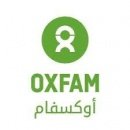Consultant / Knowledge session on Advocacy Cycles
Knowledge session on Advocacy Cycles
Background
Oxfam is a member of Oxfam International (OI) – an international confederation of 17 organizations working together in 90 countries with partners and allies around the world to find lasting solutions to poverty and injustice. On a global level, OI strives to help communities suffering as a result of natural disasters, climate change, conflict, injustice and poverty. OI helps those communities who are most in need, whatever their race, creed, religion, ethnicity or nationality. Oxfam has been working in OPTI since 1982 and supports humanitarian, development, campaigning and advocacy programmes both in the West Bank and Gaza including East Jerusalem.
Oxfam works with local civil society partners in order to amplify their voices and increase their influencing capacity, in alignment to Oxfam’s Country strategy (OCS) and influencing strategy in the Occupied Palestinian Territories and Israeli (OPTI), and Gender justice backbone document. Palestinian Civil Society partners play a crucial role in influencing international stakeholders to increasingly hold Israel and the PA accountable for respect of international humanitarian law (IHL) and human rights (HR). Capacity-building for our partners is aimed at increasing their influence, both in the nature of the advocacy work they do and in building internal organizational strength in advocacy capacity.
To achieve the change envisaged in the TOC under the conflict and Fragility Programme; the basic rights of Palestinian men and women living under Israeli occupation are respected by Palestinian, Israeli and international duty bearers leading to improved human security, members of the 1325 National coalition should be provided with the tools and guidance to strengthen their influencing capacity with regards to national and international advocacy targeting policy makers and the Palestinian public.
Oxfam delivered a training on influencing strategies in March 2017, building on this training, Oxfam provided a second workshop on engagement with the media which was delivered in February 2018. In April 2018, to follow-up on the delivered trainings, Oxfam is planning to deliver a knowledge session on advocacy cycles related to women, peace and security agenda (WPS). This session was identified based on the needs of Oxfam’s partners.
Oxfam is planning to provide knowledge session on follow up process throughout the four phases of the UN human rights mechanisms cycle: information gathering, reporting, dialogue with the concerned State, recommendations and concluding remarks. This workshop will address the UN protection mechanisms phases, Follow-up methods and activities, Follow-up procedures and practices of human rights mechanisms beyond the fourth phase.
Oxfam will hold a one-day workshop in two different locations (1 day in the West Bank and 1 Day in Gaza) for strategic partners and members of 1325 national coalition on the advocacy cycles of WPS agenda on the National and International levels.
Overall Objectives of the assignment
The purpose of this intervention is to provide the Palestinian partners with tools, methods and guidelines on how to effectively implement their advocacy goals for the women peace and security agenda throughout the four phases of the UN protection Mechanisms Cycle, particularly advocating for the active participation and role of Palestinian women in decision making at all levels of society, especially in advancing a gender sensitive peace and security agenda.
The Specific Objectives are:
- Provide practical tools, practice, and confidence for conducting advocacy work with international and national actors and bodies with a focus on follow-up process.
- Promote an open discussion of the challenges and needs for national and international advocacy within the wider framework of the 1325 National Action Plan and the UN protection mechanisms.
The key tasks of the assignment are:
Task1: Develop the workshop materials, documents and methodology
Task 2: Carry out and facilitate a 2-day workshops, one in the West bank and one in Gaza
Task 3: Draft a summary report highlighting key observations, recommendations, and next steps.
The Duration and Schedule of the assignment:
The timeframe of this assignment is schedule for a maximum 4-days in April 2018.
Key tasks and Deliverables Proposed # of Working Days
Description of Outputs
Task 1: Develop training materials and relevant documents / 1 days
submission of the proposed methodology, agenda, plan, Power Point Presentation, exercises, that will cover advocacy cycles related to women, peace and security agenda (WPS) on the national and international level.
Task 2: Carry out and facilitate a one-day training workshops (in-West Bank and Gaza) / 2 days
- The workshop should be interactive, and draw from the experiences of the participating organizations, and based on the C&F programme and its theory of change.it will provide brainstorming and food for thought alongside an introduction to the UN human right mechanisms phases, Follow-up methods and activities, Follow-up procedures and practices of human rights mechanisms, introduction of practical, easily implemented advocacy tools. In addition, it shall include a seminar session requiring the participants to put together a plan for an advocacy strategy that sustain engagement with one UN mechanism during the four phases and beyond the concluding observation (CEDAW).
Task 3: Provide feedback on workshops summary report that will highlight key observations, recommendations and next steps. / 1 days
- Draft a summary report of the workshop highlighting key observations, recommendations for a follow up session tackling the shortcomings of the participant CSOs.
Total # of Estimated days for the assignment /4 days
Payment
A payment plan will be developed upon consultation and agreement with the selected consultant prior to signing the service contract. Payment installments will be issued upon receipt of deliverables as agreed between Oxfam and the selected consultant and following submission of official documents as will be agreed later. Individual consultants, private companies, are eligible to apply, subject to the availability of official documents of registration in the country/state where located.
Jobs.ps, Ltd. All Rights Reserved.
Consultancy Service Requirements
This consultancy is open to both local and international consultants who will fulfil the following requirements:
- Academic degree in law, social sciences, gender studies, or development studies;
- Extensive knowledge and skills in International law, Human rights law, women peace and security agenda (national action plans for the UNSR 1325), international legal framework of gender protection mechanisms, advocacy in the context of CSOs; extensive experience working with CSOs (for organizational as well as project level);
- Extensive experience in workshop and training facilitation on advocacy tools for gender protection mechanisms on the national and the international level.
- Strong knowledge and understanding of the context in the Occupied Palestinian Territory and Israel.
- Participants with experience in one or more of the following areas will have preference: gender sensitive advocacy experience (high preference), legal aid services (high preference); women’s empowerment and male involvement in conflict settings; working on gender & conflict analysis.
- Excellent interpersonal, communication and analytical verbal and writing skills in English.
Oxfam invites bids from individual consultants or firms with the experience and skills described above.
Bids must include the following:
- A letter of motivation outlining how your experience, skills, qualifications and professional background fit with the required deliverables (maximum one page) attaching at least two concrete examples of similar work demonstrating the consultancy service requirements.
- A cost / financial proposal in USD and including VAT.
- A Curriculum Vitae (CV) detailing relevant skills and experience including three contactable referees (maximum 2 pages).
- A workshop proposal outline, including the proposed training methodology, based on the workshop objectives and key deliverables described above (maximum two pages); the selected consultant will be requested to finalize the proposal as well as training materials in consultation with Oxfam as the first deliverable, following the signing of the consultancy contract with Oxfam.
- The bids should be submitted via email addressed to Areej Alrajabi: [email protected], with a copy to Anton Naber: [email protected]** received no later than midnight GMT, 10 April 2018.
ll be requested to finalize the proposal as well as training materials in consultation with Oxfam as the first deliverable, following the signing of the consultancy contract with Oxfam.
The bids should be submitted via email addressed to Areej Alrajabi: [email protected], with a copy to Anton Naber: [email protected]** received no later than midnight GMT, 10 April 2018.







